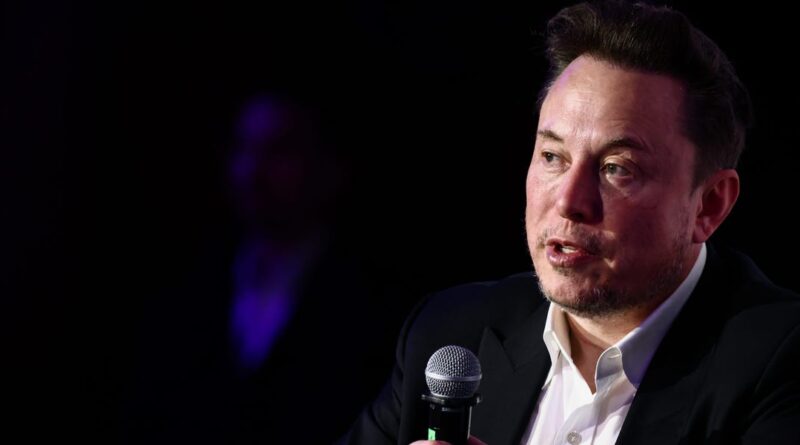The X is banned in Brazil and China, but Elon Musk is still fighting for one. The secret? Tesla.
Elon Musk’s support for free speech seems to vary depending on the country he deals with.
Since Brazil decided to ban X last week, the billionaire social media mogul and self-proclaimed “free speech absolutist” has been vocal about his frustration over immigration and the threat he thinks it poses. democracy.
“Free speech is the foundation of democracy and the unelected fake judge in Brazil is destroying it for political purposes,” Musk wrote on X after the Supreme Court’s Alexandre de Moraes order to stop the company public affairs.
Brazil is X’s fifth largest market, so Musk’s anger about the decision is also understandable from a business perspective. Musk remains steadfast in the fight to keep users on the platform that he spent $44 billion to acquire almost two years ago.
That said, it’s worth asking why Musk’s freewheeling absolutism doesn’t carry over to another country where he’s most concerned.
China – a country where Musk has been given five-star treatment and access to its political and business leaders – has long blocked Western social media companies. Among them is X, which has been banned in China since 2009.
Beijing authorities moved to block access to the app, then known as Twitter, just days before the 20th anniversary of the Tiananmen Square massacre. At the time, the app was gaining popularity among internet users looking for a platform to share their thoughts.
There is a good reason for the big difference. Teslathe most important company in Musk’s business empire, it needs China on the other hand.
Tesla size gap between Brazil and China
China is Tesla’s most important international market. VCG
There is no mistaking how important China is to Tesla.
The electric car maker opened its first store there ten years ago in 2013. Six years later, in 2019, it started building a gigafactory in Shanghai. And in that time it has made China its most important market outside the US.
By 2023, nearly a quarter, or $21.7 billion, of its $96.8 billion revenue will come from China. In Tesla’s financial statements, China is the only international market with a separate line representing revenue figures. All markets outside the US and China fall under the “other international label”.
Free press may be difficult for Musk in China, especially at a time when Tesla faces growing competition from domestic players such as BYD.
Tesla experienced a decline in sales in China in the first half of the year, according to filings. Its market share of EV sales in China fell to 6.5% between January and July, down from around 9% in the same period last year, according to data from Shanghai consultancy Automobility e reported by The Financial Times.
Rocking the boat could make Tesla’s life more difficult in China.
In addition, China has become an important place for Tesla to realize its robotaxi ambitions. After an unannounced visit to China in October, Tesla shares surged 15% after news broke that Musk had struck a deal with Chinese Internet giant Baidu to boost his company’s efforts to developing self-driving car technology in the country.
In the middle of the trip, Musk shared with X – perhaps with the help of a VPN over the “Great Firewall” of China – that he was “honored” to meet with Premier Li Qiang. “We have known each other for many years now, since the early days in Shanghai,” he wrote.
Meanwhile, Brazil is not yet an official market for Tesla.
Although people have been seen traveling in Teslas across the country, they have usually arrived there having been purchased from the US or Europe. There is no official dealer in this country; Chile is listed as the only South American country on its website.
According to Luke Gear, principal analyst at Benchmark Mineral Intelligence, a research firm that analyzes the EV market and its supply chains, Brazil has been a “small market” for electric vehicles until now, with plug- in only 50,000 sold there in 2023. .
That said, Gear told Business Insider that the market is “growing rapidly”, and last year’s 50,000 sales figure was surpassed in June this year. The growth is “driven by cheap goods from BYD”, he added.
The former president of Brazil, Jair Bolsonaro, said in 2020 that the opportunity to bring Tesla to his country is part of his plan for a trip to the US.
He met with Musk two years later, in May 2022, when the billionaire was preparing to take over Twitter – a move described by Bolsonaro as a “breath of hope” in comments reported by Reuters. But the deal to take Tesla to Brazil never happened.
Han Yang, a political observer who said he was formerly in China’s Foreign Ministry and now lives in Australia, wrote on X this month that Musk “pretends to be a champion of free speech” but has yet to speak out. “one word of rejection.” of Chinese president Xi Jinping, who he says has banned X from the country.
As long as Tesla is dependent on China, it seems that free speech is far from Musk.
X did not immediately respond to a request for comment from Business Insider.
